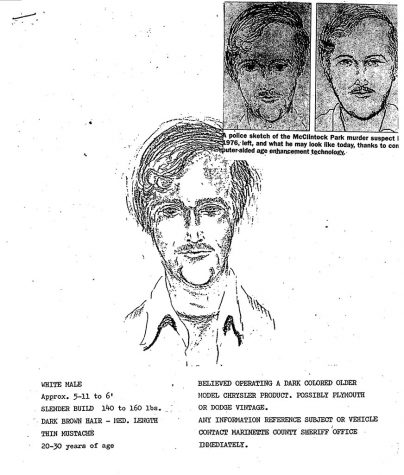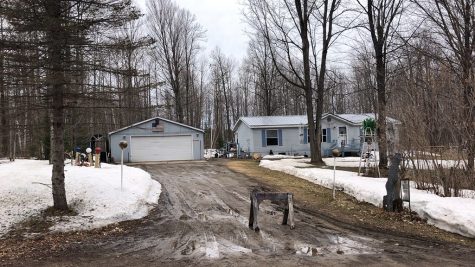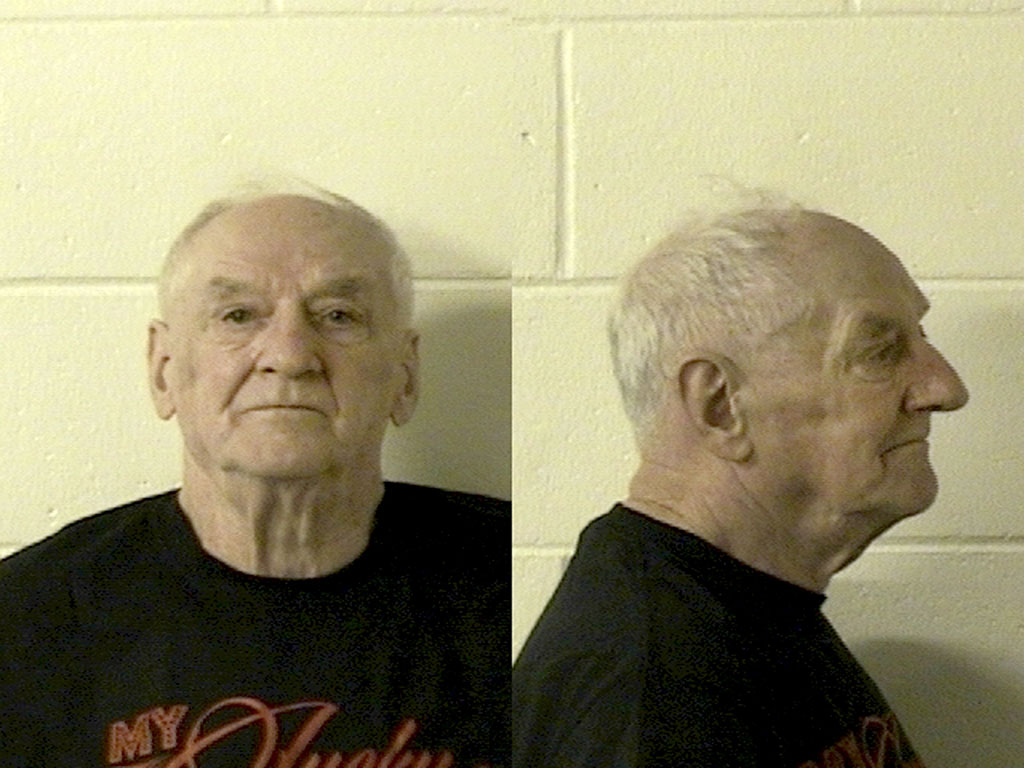Arrest in 43-year-old murder case stuns Wisconsin town
June 1, 2019
LAKEWOOD, Wis. — Word of the arrest — via a friend’s text message — hit Wayne Sankey like a thunderbolt.
“I said, ‘You gotta be kidding me,’” Sankey recalled. “And then I told the wife and she couldn’t believe it. ‘There’s no way,’ she said. ‘Ray down the road?’”
Ray Vannieuwenhoven was his next-door neighbor — a helpful, 82-year-old handyman with a gravelly voice and a loud, distinctive laugh, the kind of guy who always waved from his car.
The widower and father of five grown children had lived quietly for two decades among the 800 residents of Lakewood, a northern Wisconsin town surrounded by forests and small lakes.
Now authorities were saying this man was a cold-blooded killer. They had used genetic genealogy to crack a cold case that stretched back well into the 20th century — a double murder 25 miles southwest of Lakewood.
For nearly 43 years, Vannieuwenhoven had lived in plain sight, yet outside detectives’ radar.
It was just too much to be believed. Was the guy next door really a monster?
David Schuldes and Ellen Matheys, engaged to be married, set up their campsite at a secluded spot in McClintock Park on Friday afternoon, July 9, 1976.
It appeared they were alone.
Schuldes was a 25-year-old part-timer in the circulation department of the Green Bay Press-Gazette; Matheys, 24, worked at the University of Wisconsin-Green Bay library.
They were about to go for a walk, according to court documents and news reports of the time. First, Matheys stopped to use the restroom.
Two shots from a .30-caliber rifle shattered the quiet. One bullet struck Schuldes’ neck from 50 feet away, killing him instantly. The other bullet lodged in a bathroom wall.
Matheys ran, with the killer in pursuit, investigators say. He caught and raped her, then shot her twice in the chest.

In this 1976 police sketch provided by the Marinette County Sheriff’s Office is the initial police sketch of a suspect shortly after the 1976 murders of David Schuldes and Ellen Matheys. Prosecutors said they used DNA and genetic genealogy to connect Raymand Vannieuwenhoven to the killings 43 years ago of the young couple. Vannieuwenhoven, 82, a widower and father of five grown children had lived quietly for two decades among the 800 residents of Lakewood, a northern Wisconsin town about 25 miles southwest from the site of the murders. Now he was being held on a $1 million bond.
Her body was found 200 yards from where Schuldes lay, a camera slung over his shoulder.
Investigators were stumped: The killer took no money and left Matheys’ purse in the couple’s car. They didn’t know why the couple was targeted, and leads were scant. For months, campers avoided McClintock Park.
DNA profiling in the ‘90s brought new hope, but detectives got no matches when they submitted the semen from Matheys’ shorts to the FBI’s national database.
Last year, detectives contacted Virginia-based Parabon NanoLabs, a DNA technology company whose work with genetic genealogy analysis has helped police identify 55 suspects in cold cases nationwide since May 2018, according to the company. Parabon uploads DNA from crime scenes to GEDmatch, a free, public genealogy database with about 1.2 million profiles, all voluntarily submitted by people who’ve used consumer genealogy sites like Ancestry.com and 23andMe.
California law enforcement used GEDmatch to capture the alleged Golden State Killer last year by finding distant relatives and reverse-engineering his family tree.
Parabon’s experts completed Vannieuwenhoven’s family tree in late December. They’d found his parents, who had lived in the Green Bay area. Now detectives needed DNA samples from Vannieuwenhoven and his three brothers. Two were ruled out with DNA samples collected from one brother’s trash and another’s used coffee cup.
On March 6, two sheriff’s deputies knocked on Vannieuwenhoven’s door, pretending they wanted him to fill out a brief survey on area-policing. They told him to put the survey in an envelope and seal it with his tongue.
Detectives didn’t need to visit the fourth brother. Eight days later, Vannieuwenhoven was in custody.
At Vannieuwenhoven’s first court appearance, on March 22, bond was set at $1 million.
“Not guilty, not guilty, not guilty,” Vannieuwenhoven said, when the judge asked him if he understood the charges. His next court date is June 19.
Kurt Schuldes, 68, a cousin of David Schuldes in Green Bay, welcomed the news of an arrest, but lamented the time it took: “He just got away with it for way too long, unfortunately.”
“It was a long time coming,” said Cynthia Chizek, Matheys’ 53-year-old niece, who lives in Henderson, Nevada. “It’s just something that always hangs over your head, knowing that there’s someone out there who did this heinous crime.”
Prosecutors and Lakewood residents, meanwhile, were left with the question: Who is Raymand Lawrence Vannieuwenhoven?
Richard Leurquin, twin brother of Vannieuwenhoven’s dead wife, Rita, said his brother-in-law was “a very loving father to his wife and kids.” He’s convinced Vannieuwenhoven is innocent.
The Vannieuwenhovens were married until her death in 2008, a few months after they celebrated their 50th wedding anniversary. Sankey said after Rita died, Vannieuwenhoven spent his days fishing, hunting, and going on weeks-long camping trips.
But Vannieuwenhoven had a dark side. To start, this isn’t his first time in jail.
In 1957, when he was 20, married, and going by the name Lawrence Vannieuwenhoven, he was jailed for six months for an unprovoked attack on a 17-year-old girl. She was walking with three friends when Vannieuwenhoven struck her on the back, face, and shoulder. Shortly before, police said, Vannieuwenhoven also tried to attack a 16-year-old girl.
Vannieuwenhoven said before sentencing he “was only trying to scare the girls,” the Press-Gazette reported at the time.
In 1960, he pleaded guilty to not providing financial support to his wife and their 1-year-old daughter, the Press-Gazette reported then. He was on probation for a year.
More recently, some neighbors caught glimpses of a menacing side when he drank. He stopped only a few years ago, for his health, they said.
“I know this much — when he was drinking he was one son of a bitch. You didn’t want to be anywhere near him when he was drinking. Not just me, a lot of people,” said Fred Mason, 66, who works at the town dump where Vannieuwenhoven was seen frequently, rummaging through scrap piles for small engine parts.
Robert Ganzell, 86, and his wife sometimes dined out with Vannieuwenhoven. He heard from others that he had a temper when he drank, but Ganzell said he never witnessed it.
As for the murder charges, Ganzell was nonplussed. “Never thought of it being him, doing anything like that,” Ganzell said. Aside from that, he had little to say about Vannieuwenhoven.

In this April 10, 2019, screenshot taken from a video is the house where Raymand Vannieuwenhoven lived in Lakewood, Wis. Prosecutors said they used DNA and genetic genealogy to connect Vannieuwenhoven to the killings 43 years ago of a young couple David Schuldes and Ellen Matheys. Vannieuwenhoven, 82, a widower and father of five grown children had lived quietly for two decades among the 800 residents of Lakewood, a northern Wisconsin town about 25 miles southwest from the site of the murders. Now he was being held on a $1 million bond.
In fact, the neighbors realized that they knew little about this man. For instance, it’s unclear where he worked before retiring. Sankey said he’s heard Vannieuwenhoven was an iron worker, but he also told Sankey he used to haul and deliver boats.
Sankey, 68, said he and his wife are still coming to terms with the allegations against their next-door neighbor, the guy who would occasionally repair his lawnmower or snow blower.
“People had the impression that he was a very good, normal person, just a retired guy,” Sankey said. “No matter where you went you’d mention Ray and they’d say, ‘Oh yeah, old Ray.’ That was basically about it. It’s still hard to believe.”
